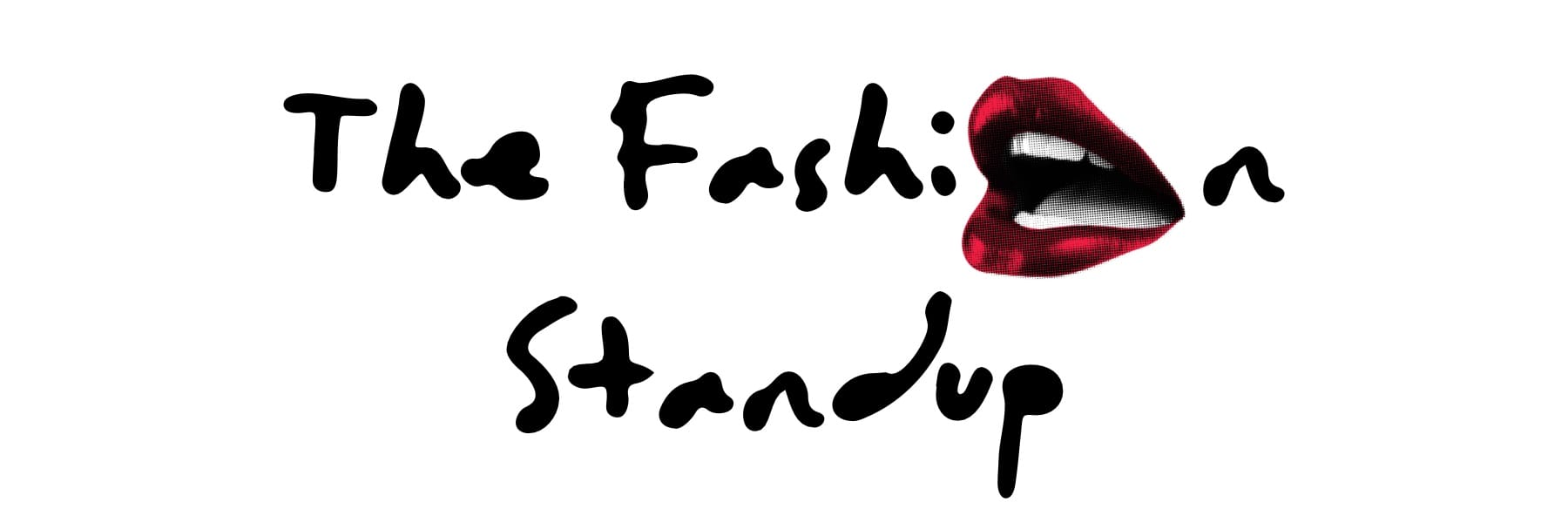The (Fashion) Designer is the New Editor and the New Writer - Vogue by Marc Jacobs
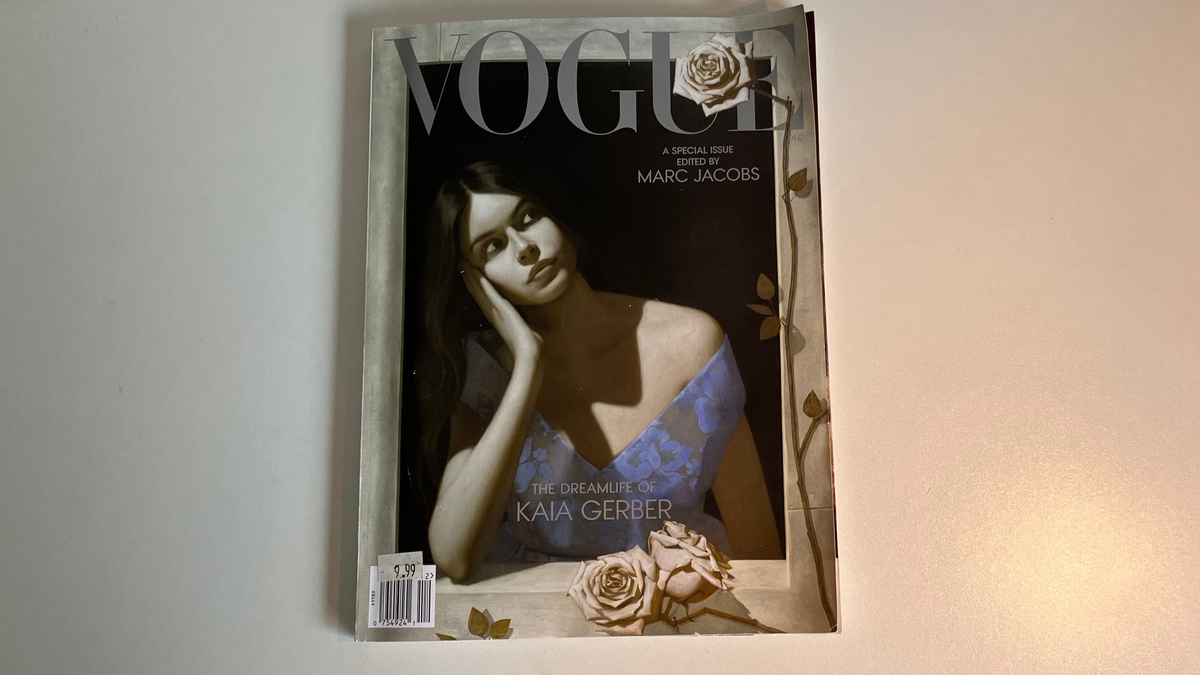
After what seemed like centuries, somewhere lost in the Netherlands, it arrived. The American Vogue of December 2024, the Vogue edited by Marc Jacobs arrived at (my) home.
The fact that a brilliant and iconic designer like Marc Jacobs is the editor of Vogue appears to be or it felt to be a validation that fashion designers embrace the media.
On the same day that I write this in my notebook, for me handwriting is a form of sketching, I read a sentence by Susan Sontag that completely contradicts what I just said. For Sontag, we shouldn’t wait for society’s kiss on the forehead to validate what we do. Still, we always end up waiting for it…
What do I hope to find beyond the incredible portrait of Kaia Gerber, in other words beyond the cover? Maybe a road map, maybe the possibility of extracting a list of similarities between fashiom design itself and the editing that Marc Jacobs did for this Vogue issue.
I'll look and see, read and study and I'll tell you.
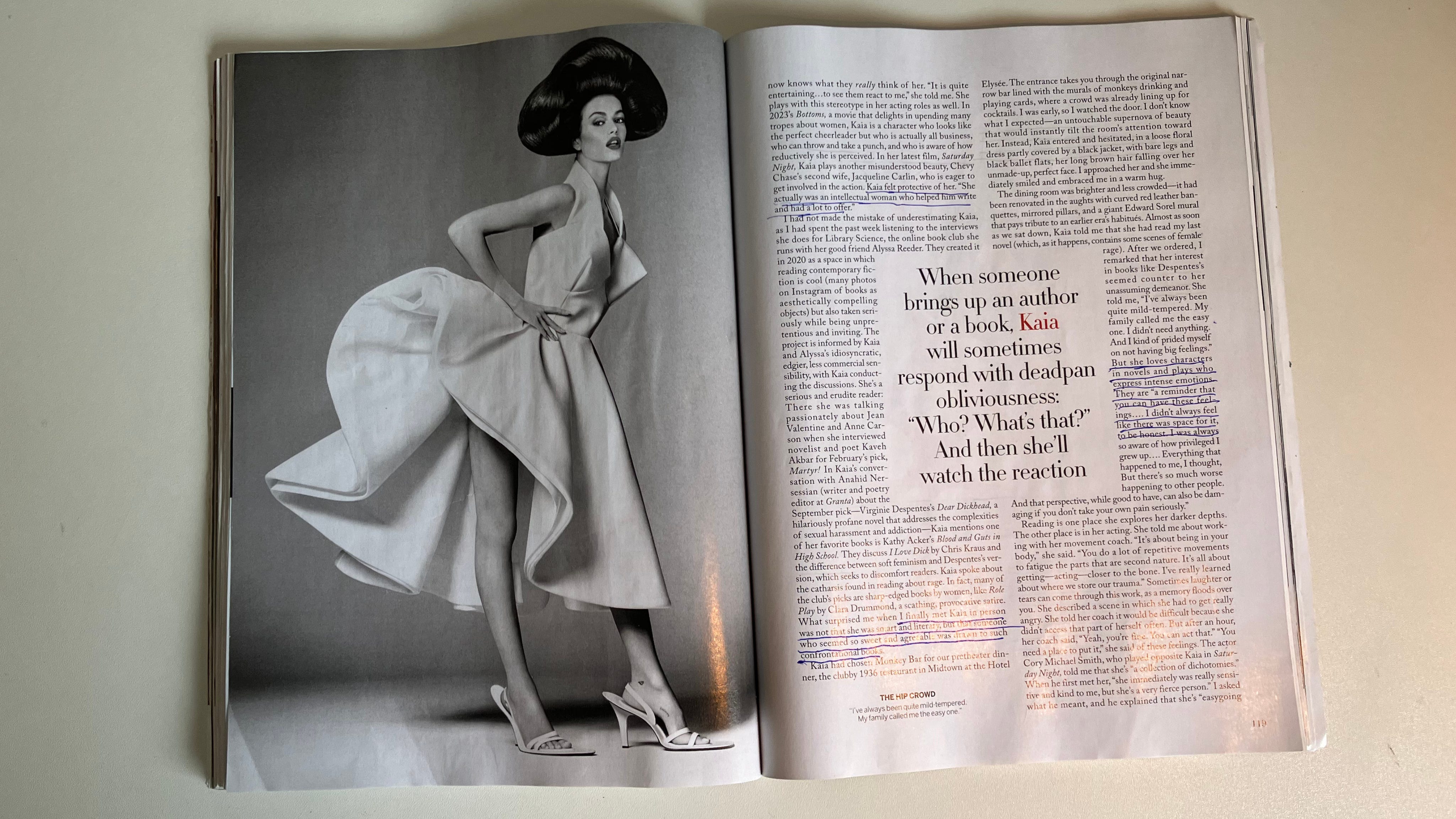
Before proceeding, it is better to clarify the big question, perhaps it is big just for me, nevertheless it is a question: if I write about Fashion independently, is it not nonsense to dedicate an entire article to an issue of Vogue? Perhaps. And maybe you haven't read it and here you have an idea in a quick and uncomplicated way. In other words, I study for you and make something similar to a summary. Something I never did when we had to study Ulrich Lehmann's “Tigersprung - Fashion in Modernity” in college.
Okay, I've silenced the imposter syndrome. In fact, even Marc Jacobs has imposter syndrome (we're all human!) and the proof of this is in the Letter from the Editor(s):
“ Inside the envelope were spreads that Anna had mocked up, with me in mind, of what December could look like. Instantaneously that awful voice in my head, my inner saboteur said, "You can't do this, what do you know about putting together a magazine?" Oh, shut up!”
In a way, this edition touches on everything that is part of the life of a fashion designer from flowers (I haven't yet met any fashion designer who doesn't like flowers, which doesn't mean a good way to take care of flowers, I speak from experience) to addition (we are all addicted to something, who working in Fashion can deny a personality with obsessive tendencies?But wait, being addicted to work, gluten or traditional Portuguese pastries isn't so terrible either!).
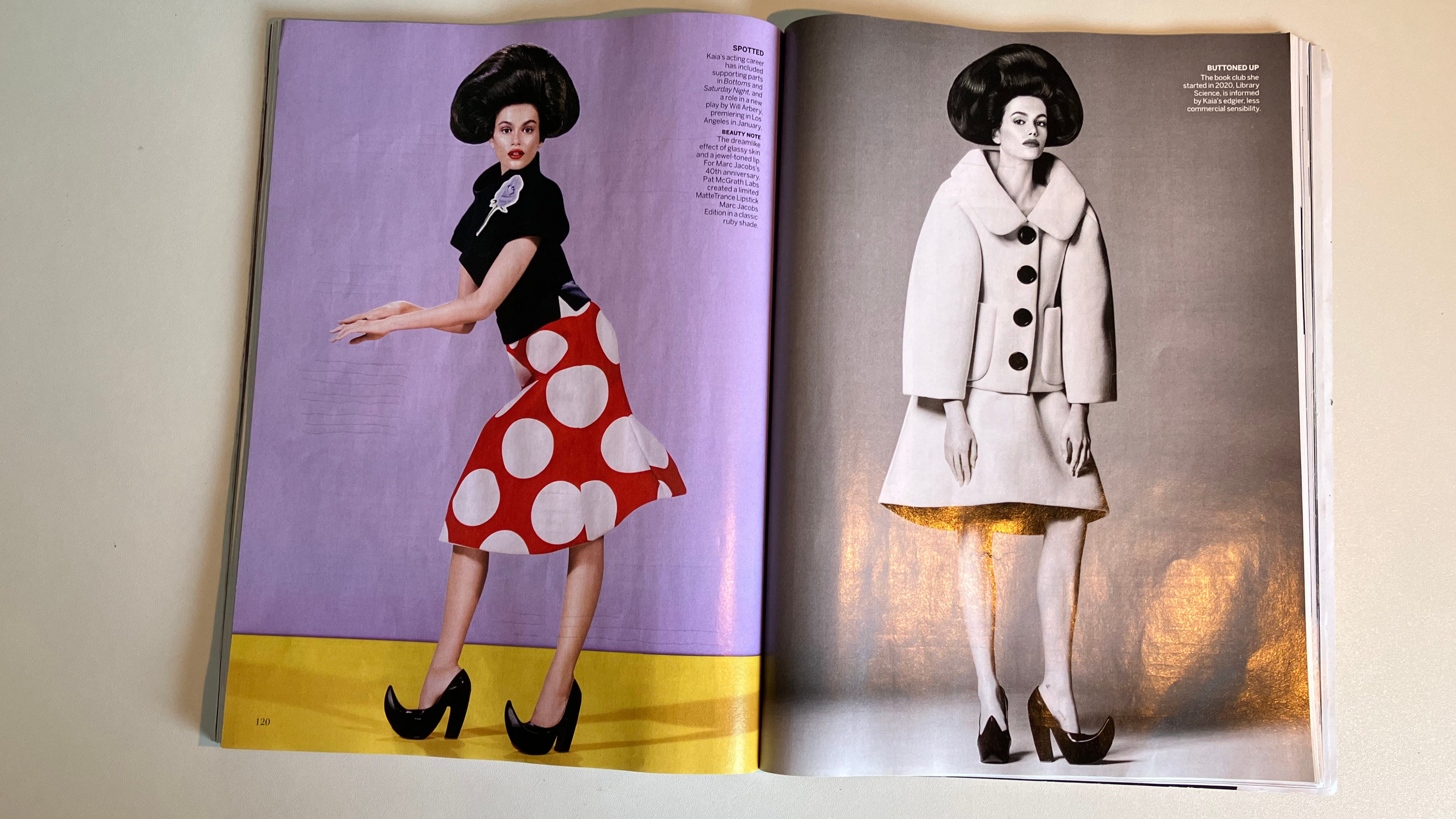
Fashion being the most transversal discipline there is, a Vogue issue directed by such a charismatic fashion designer includes literature, costume design, illustration, painting, architecture, interior design and dramaturgy.
Jacobs got AW on the cover, even though his first wish was to have Anna Wintour on the cover, one of its’ versions was signed by Anna Weyant with a magnificent portrait of Kaia Gerber.
Who said Vogue can't inspire painting? The painting was always been taken as a “greater art”, it is more classic. But with Weyant everything is a little different, Vogue and its inherent imagery have always had such an influence on her work that the canvases she uses follow the same proportions as the Vogue covers.
I could not have foreseen, besides being fascinated by Anna's (Weyant) work, that I would see myself, to a certain extent, in her routine. Working alone, in an apparently calm daily routine, alone with her work, between moments of adrenaline.
How can talking about fantasy and “torture” related to Beauty and Haute Couture change the narrative? If it is done in masculine, in the first person, as Jeremy O. Harris did.
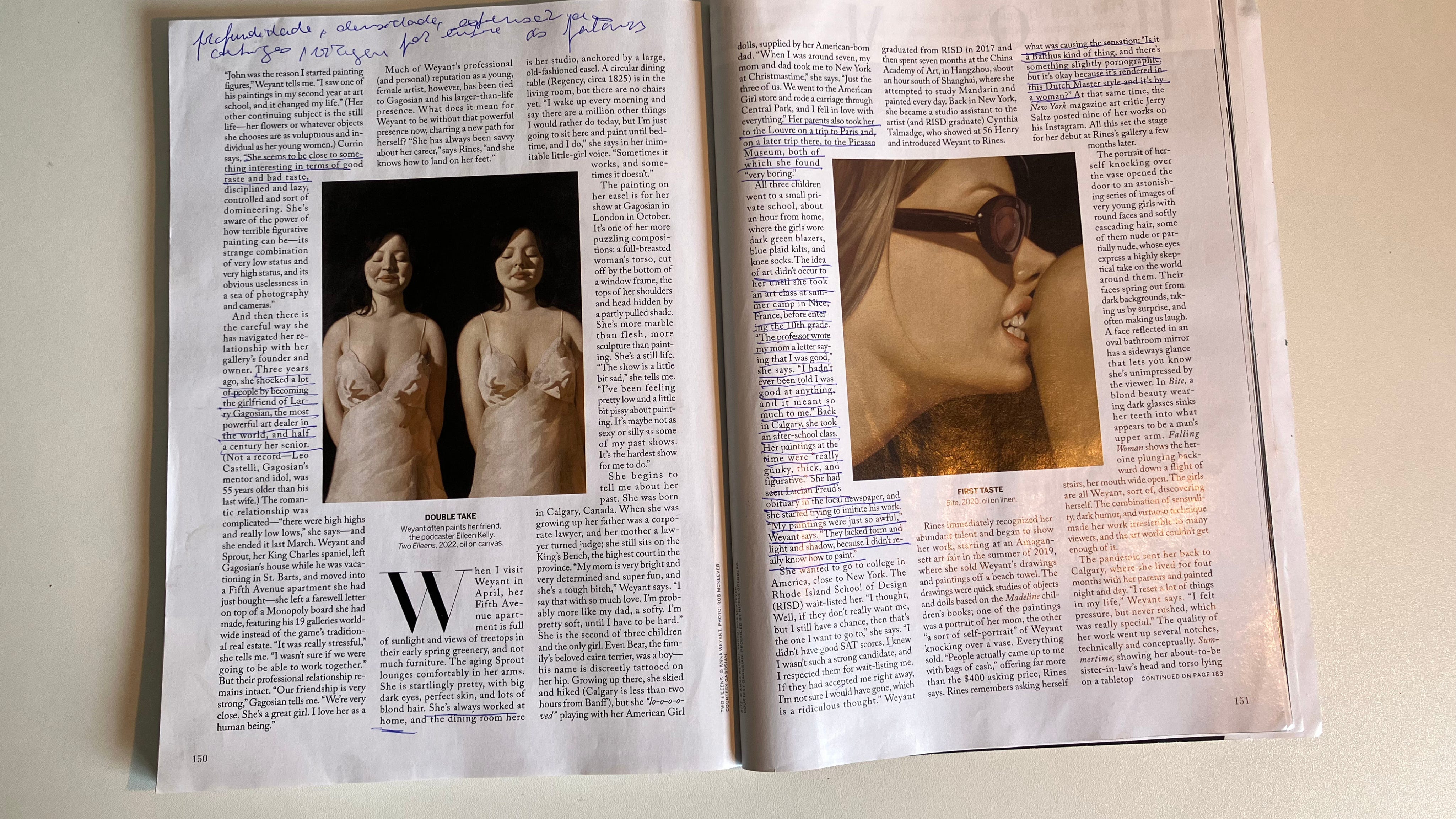
And, let's not forget Kaia, thanks to whom being a nerd is finally cool! In several dimensions and in great depth we talk about intellectual it girls (I still remember this expression being super trendy, ok?) , who are curious, astute and observant bookworms… And, in all sincerity, this was the change in panorama that we were all waiting for and that the world desperately needed. Now we have to pray that Fashion continues to be the starting point of revolutions.
When Marc Jacobs speaks, in first person, of the experience of turning a house designed by Frank Llyond Wright into his sweet home, he brings to light less tangible conclusions. Fashion designers are so reflective that they can appear to be narcissistic, in fact I think it is an enormous capacity to be aware of our own being and how this personality is reflected in the work developed.
I have no legitimacy to say, but to give my opinion, perhaps this Vogue holds within itself the future of physical magazines. We don't need magazines with the same number of pages as an old telephone directory, the purchase of which makes us anxious due to, more than likely, lack of time to read before the next issue hits the newsstands. We are bombarded with images, perhaps we are thirsty for words, in deep and even extensive texts... But we don't want the words interrupted by more than 90 pages of advertising out of a total of 185 pages.
Even though I loved reading this issue, to the point of violating the rule that personal taste is not an adjective, I question myself… As necessary as the media sponsorships that we benefit from having “adds blocks” installed and anti-advertising stickers on the PO Box?
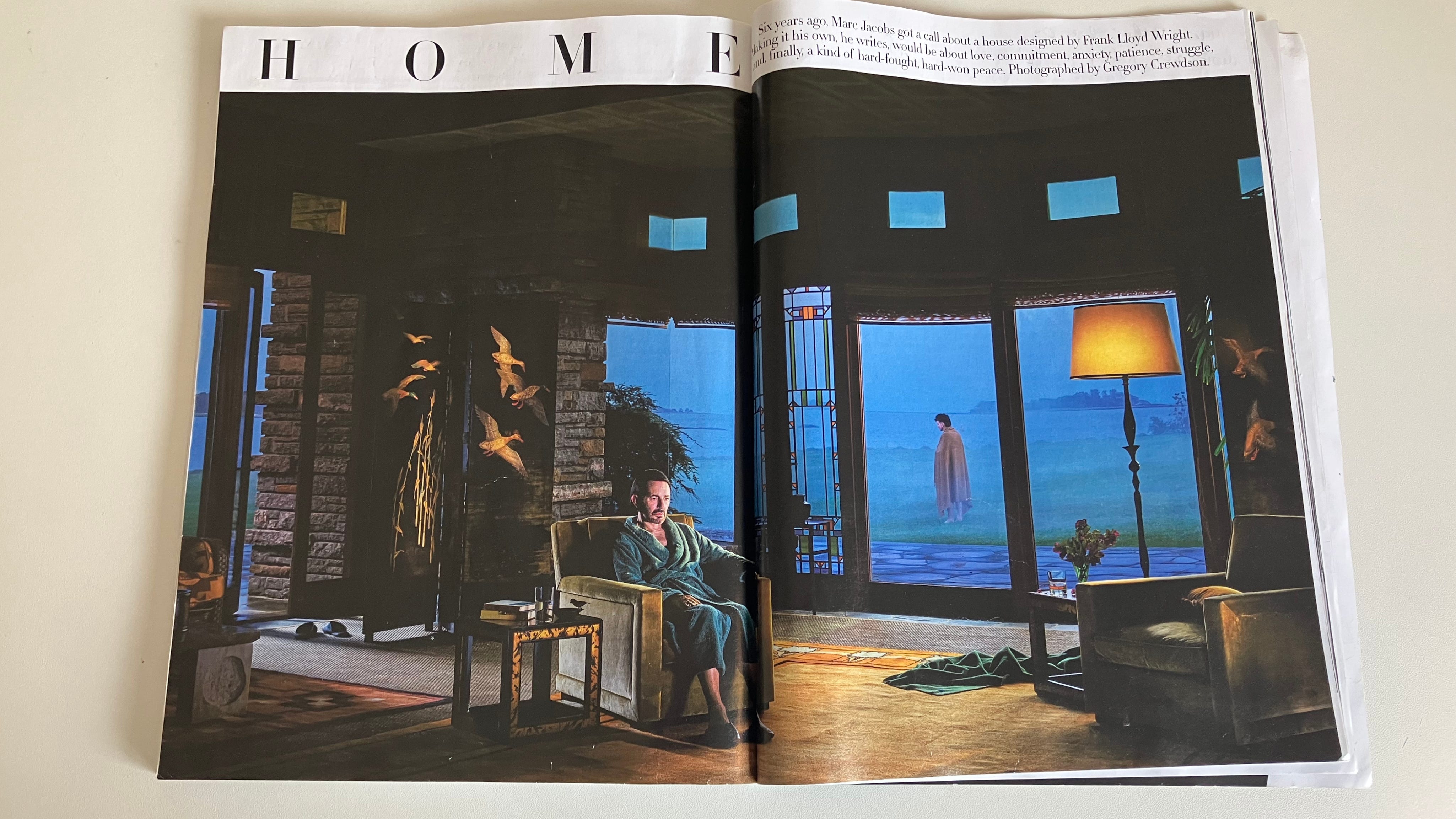
Fashion designers are perhaps the new writers and editors of our industry. Many of us were trained to know how to sew, draw, make patterns and illustrate. But above all, we learned and were trained to work in Fashion. And, although we weren’t encouraged in the same way to write, research, manage, organize, promote, investigate… No one puts up barriers to us, no one prohibits us. Fashion is freedom, no one shapes it, except the airs of the times in which we live.
In fact, I didn't get as linear answers as I wanted, but two things are clear: Marc Jacobs also uses comparisons as a mental development process; and I wasn't able to put Susan Sontag's words into practice.
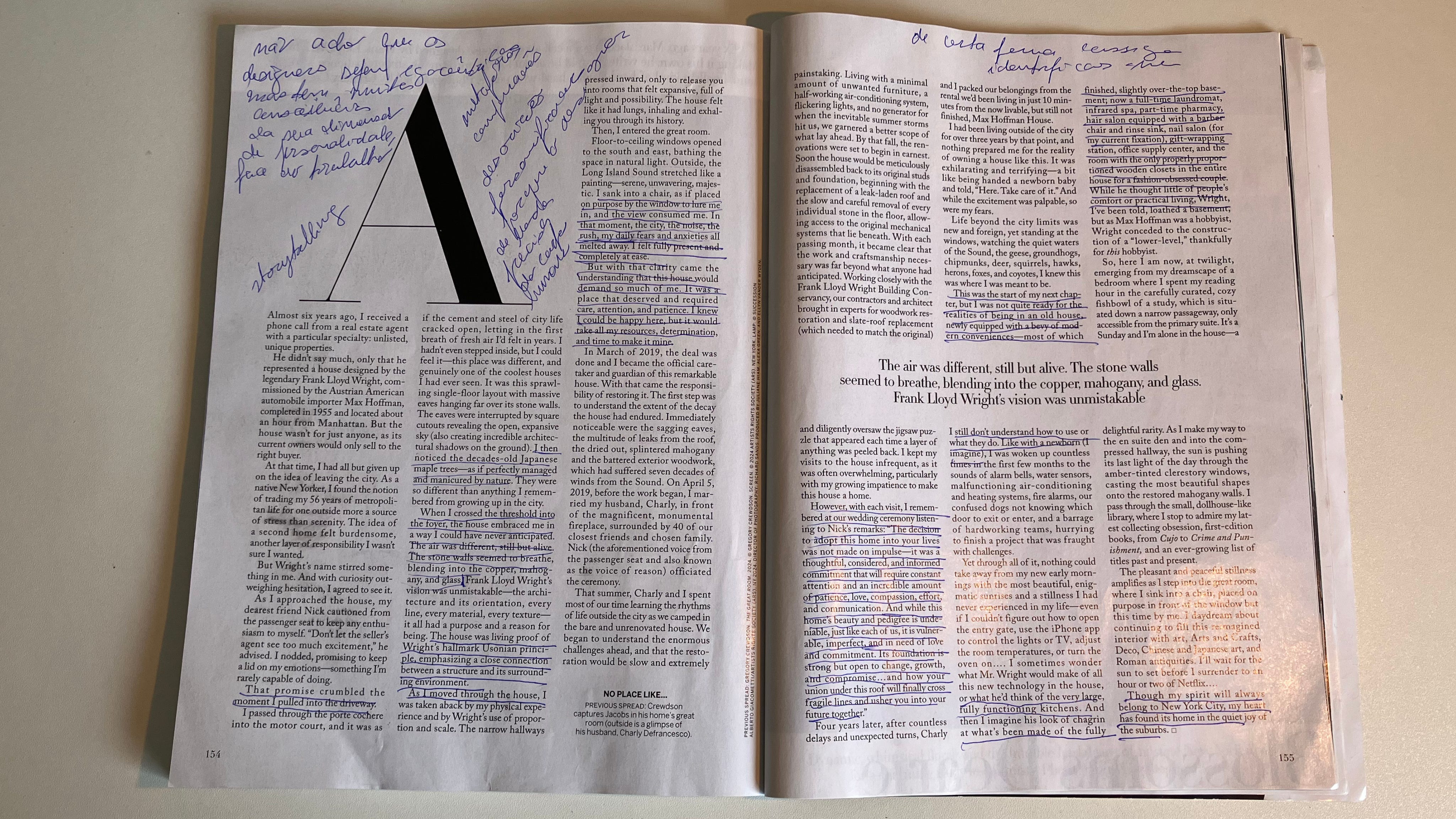
Perhaps I was a bit far-fetched with this first statement, quoting Marc himself gets to the heart of the matter:
"We want you to go for it!" Anna told me. "What would you like to say with your issue? Who would you like to be on the cover? What can the Vogue team do to help you?" In some ways I imagined the process would be like putting together a collection-let's just make a start, see where we go, and have faith that more will reveal Itself and unfold along the journey. The infamous blank page was staring me in the face.”
I can't deny that seeing Marc Jacobs, in one way or another, editing Vogue, gave validity to my pseudo madness of being a fashion designer who writes about fashion. Nothing lasts forever, I don't know if I will always write Fashion. That I will do fashion until I'm a centenarian, it's true. Another thing I'm sure of is that we see each other next week.
Love,
Vera Lucia
